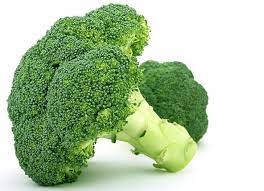No products in the cart.

Firstly, introducing Auscrops, a wonderful market vending company bridging farmers and customers together through market vendors. Click here to find out more about Does Broccoli Make You Fart as well fruit and vegetable offers.
Does Broccoli Make You Fart
As consumers, we often hear about the benefits of eating our vegetables. In particular, it seems like broccoli has become a bit of a superstar in the health world. However, many people are hesitant to incorporate broccoli into their diet because of the potential for gastrointestinal discomfort. In this blog post, we will explore common causes of digestive discomfort and whether broccoli is really to blame.
Understanding Digestion:
Before we dive into the possible effects of broccoli on the digestive system, it’s important to understand a bit about how digestion works. Digestion is the process by which our bodies break down food into smaller molecules that can be absorbed by the body. This process begins in the mouth, where enzymes in saliva begin to break down carbohydrates. From there, food travels down the esophagus and into the stomach, where it is further broken down by stomach acid. The food then moves to the small intestine, where most of the nutrients are absorbed, and finally to the large intestine, where waste is formed and eliminated.
Common Causes of Digestive Discomfort:
Digestive discomfort can be caused by a wide range of factors, including stress, dehydration, and certain medical conditions. However, one of the most common causes of digestive discomfort is poor dietary choices. Foods that are high in fat, sugar, or fiber can be difficult for the body to digest. This can lead to bloating, gas, and other uncomfortable symptoms.
Does Broccoli Make You Fart?
So, now that we understand a bit about digestion and common causes of digestive discomfort, let’s explore the question on everyone’s mind: does broccoli make you fart? The simple answer is yes, but not necessarily for the reasons you might think. Broccoli contains a complex carbohydrate called raffinose, which can be difficult for some people to digest. When the body is unable to digest raffinose, it ferments in the large intestine, causing gas and bloating. However, it’s worth noting that not everyone will experience these symptoms when eating broccoli.
Other Cruciferous Vegetables:
If you’re concerned about the potential gas-inducing effects of broccoli, you may be wondering whether other cruciferous vegetables have similar effects. Cruciferous vegetables include broccoli, cauliflower, Brussels sprouts, and kale, among others. Like broccoli, these vegetables contain raffinose, as well as other compounds that can be difficult for the body to digest. So, if you’re prone to digestive discomfort, it may be worth limiting your intake of these vegetables or experimenting with cooking methods that make them easier to digest.
Tips for Digestive Comfort:
Ultimately, the most important thing is to listen to your body. If you find that broccoli or other vegetables are causing discomfort, try incorporating them into your diet in smaller quantities or with other foods that are easier to digest. Other tips for promoting digestive comfort include drinking plenty of water, getting regular exercise, and avoiding processed foods and other dietary irritants.
Conclusion:
While broccoli and other cruciferous vegetables can cause digestive discomfort for some people, they are still an important part of a healthy diet. By understanding how digestion works and being mindful of your body’s reactions to different foods, you can find a balance that works for you. The key is to experiment, be patient, and above all, be kind to yourself. Happy eating!
Click here to read similar articles.
 Français
Français 










